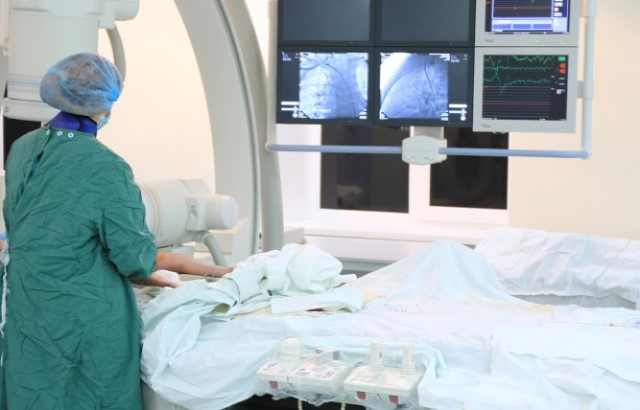
New clinical trial aims to improve heart protection during surgery in children



We have funded a new clinical trial that could help improve the recovery of children who undergo life saving heart surgery.

The £570,000 study, led by researchers at the University of Birmingham, will compare two ways of protecting the heart when children require open heart surgery to repair congenital heart defects, to find which is most effective.
Repairing the heart safely
Congenital heart disease is a heart defect that develops in the womb before a baby is born. Each day in the UK, around 13 babies are diagnosed with a congenital heart condition, with more diagnoses later in life.
In severe cases, and often at a young age, open heart surgery is required to repair the defect to help improve the child’s survival and quality of life. Some children require multiple operations, and recovery from open heart surgery can take several weeks or even months.
During open heart surgery, a fluid called cardioplegia is commonly used to stop the heart beating so that the surgeon can repair it safely. Although the technique is safe, cardioplegia stops the blood flow to the heart and may cause damage to the heart muscle when the blood flow is restored, which can affect the child’s recovery.
Most effective treatment
There are many different types of cardioplegia solutions available, which work in slightly different ways – and it is not currently known which fluid works best in children of different ages.
In the United States, the most commonly used solution is called del Nido cardioplegia, which was designed specifically for use in children’s heart surgery but has not previously been available in the UK.
The new trial will compare del Nido cardioplegia with St Thomas’ cardioplegia, which has been used for many years in both adults and children and is currently the standard of care in the UK.
It will involve 220 children undergoing open heart surgery at four hospitals across the UK - Birmingham Children’s Hospital, Bristol Royal Hospital for Children, Great Ormond Street Hospital and Leeds Children’s Hospital.
Half of the patients will be assigned to receive del Nido, with the other half receiving St Thomas’ cardioplegia. Researchers will then compare the two groups by assessing how well the children recover from surgery and determining the extent of any heart damage.
The study will help to reveal whether one solution is potentially more effective than the other for children during surgery.
Fewer complications
The research will be led by Nigel Drury, Consultant in Paediatric Cardiac Surgery at Birmingham Children’s Hospital and Hunterian Professor in the Institute of Cardiovascular Sciences at the University of Birmingham.
Mr Drury, who is also a BHF Intermediate Fellow, said: “By improving the way in which we protect the heart during surgery, we expect that children will recover from surgery faster and with fewer complications.
“These early benefits may also lead to better long-term outcomes, with less injury and scarring to the heart muscle. As children with severe heart defects often need multiple operations, they will have the most to gain from improving how we protect the heart during each surgery.
“If our trial is successful, this will support the need for a larger, definitive study, which could have the potential to change the way children are treated around the world.”
Alfie’s story

Alfie Donnelly, aged nine, was born with various complex congenital heart diseases and has had to undergo three open heart surgeries at Birmingham Children’s Hospital.
Mum Claire Donnelly, aged 43, said: “When Alfie was a new-born, we noticed that he wasn’t feeding well, was cold all the time and wouldn’t cry. We struggled to wake him one morning and he was making a grunting noise when he was breathing, so I rang the hospital who told us to bring him in.
“Alfie became so ill that he was put on a life support machine. After several tests and scans, we were told that Alfie’s heart condition was rare and complex and that he needed open heart surgery. We were also told that if a procedure did go ahead, it was unlikely he would survive past his first birthday. The whole situation felt so bizarre, I remember feeling frozen to the spot.
“Alfie was just one week old when he had his first operation, and he was a little fighter. He has since had two more open heart surgeries, which included replacing the damaged valve in his heart with a donor valve.
“Alfie’s recovery after surgery has been slow and he has had further complications. Following his first and second surgery, Alfie had a build up of fluid in his lungs and this required several chest drains, which meant spending further time in hospital.
“With what Alfie has been through, it has made us a solid family and we all appreciate life even more. For us as a family, the research that the BHF is funding gives us hope that children and babies with congenital heart disease, like Alfie, aren't being forgotten.”

